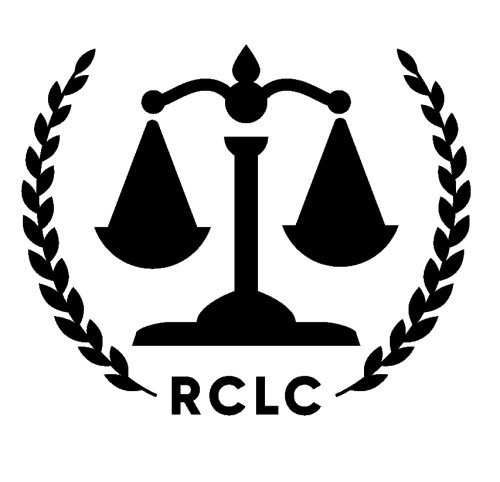Best Antitrust Lawyers in Harare
Share your needs with us, get contacted by law firms.
Free. Takes 2 min.
List of the best lawyers in Harare, Zimbabwe
About Antitrust Law in Harare, Zimbabwe
Antitrust law in Harare, Zimbabwe, is aimed at promoting fair competition and preventing anti-competitive practices within the marketplace. These laws are designed to protect consumers and businesses by ensuring a level playing field and preventing monopolies, cartels, and other activities that restrict competition. In Harare, the Competition and Tariff Commission (CTC) is the regulatory authority responsible for implementing and enforcing antitrust legislation. Ensuring compliance with these laws is critical for maintaining a healthy economic environment that encourages innovation and consumer choice.
Why You May Need a Lawyer
There are several situations where an individual or business may require legal assistance in the field of antitrust: 1. **Mergers and Acquisitions**: Before proceeding with a merger or acquisition, ensuring compliance with antitrust laws to prevent anti-competitive outcomes is essential. 2. **Cartel Investigations**: If your business is suspected of price-fixing or other cartel activities, legal advice is crucial to navigate the investigation. 3. **Market Dominance**: Companies with a substantial market share need legal guidance to ensure they are not abusing their dominant position. 4. **Compliance Programs**: Businesses often seek legal expertise to develop compliance programs aligned with antitrust regulations. 5. **Litigation**: If you are involved in a lawsuit related to anticompetitive practices, expert legal representation is vital. Antitrust laws can be complex, and a lawyer specialized in this field can provide invaluable guidance to ensure compliance and to protect your interests.
Local Laws Overview
In Zimbabwe, the Competition Act is the primary legislation governing antitrust matters. Key aspects of the local laws include: - **Prohibition of Anti-competitive Agreements**: Agreements that prevent, restrict, or distort competition are prohibited. - **Control of Anticompetitive Practices**: The law addresses practices such as predatory pricing, refusal to deal, and exclusive agreements that can harm competition. - **Merger Control**: Mergers that significantly lessen competition in the market are subject to examination and may be blocked. - **Abuse of Dominance**: Firms in a dominant market position must not engage in conduct that abuses this dominance. The Competition and Tariff Commission (CTC) is responsible for investigating potential breaches of these laws and ensuring enforcement.
Frequently Asked Questions
What is antitrust law?
Antitrust law encompasses regulations designed to maintain competition, preventing companies from engaging in practices that establish monopolies or unfairly restrain trade.
Who enforces antitrust laws in Zimbabwe?
The Competition and Tariff Commission (CTC) is the regulatory body responsible for enforcing antitrust laws in Zimbabwe.
What activities might constitute anti-competitive behavior?
Examples include price-fixing, bid-rigging, market allocation, abusing dominant market positions, and engaging in mergers that reduce competition significantly.
How can businesses ensure compliance with antitrust laws?
Businesses can ensure compliance by conducting regular audits, training staff, and implementing comprehensive antitrust compliance programs with legal guidance.
What penalties exist for violating antitrust laws in Zimbabwe?
Penalties can include fines, orders to cease and desist from unlawful activities, and potential disqualification of directors involved in violations.
Are all mergers subject to antitrust review?
No, only mergers that could significantly affect competition in the Zimbabwean market require review and approval from the CTC.
What should I do if my business is accused of anti-competitive behavior?
Seek immediate legal advice to understand the allegations, respond appropriately to any investigations, and ensure your rights are protected.
Can consumer groups play a role in antitrust enforcement?
Yes, consumer groups can report suspected anti-competitive behavior to the CTC and advocate for strong enforcement of antitrust laws.
How do antitrust laws benefit consumers?
Antitrust laws prevent anti-competitive behaviors that could lead to higher prices, reduced quality, and less choice, thus protecting consumer interests.
What recourse do businesses have if they are harmed by anti-competitive practices?
Businesses can file complaints with the CTC or pursue private litigation to seek damages and injunctive relief against offending parties.
Additional Resources
For further assistance and information related to antitrust issues, you may find the following resources helpful: - **Competition and Tariff Commission (CTC)**: The official regulator for antitrust issues in Zimbabwe. - **Zimbabwe Business Council**: Offers guidance and advice on compliance with trade and competition regulations. - **Ministry of Industry and Commerce**: Offers resources and support for understanding regulatory frameworks. - **Legal Clinics and Law Firms**: Local law firms specializing in competition law can provide tailored legal advice and representation.
Next Steps
If you are in need of legal advice in the field of antitrust, consider the following steps: 1. **Initial Consultation**: Identify and consult with a lawyer specializing in antitrust law to discuss your situation and receive preliminary advice. 2. **Document Review**: Gather all relevant documents and records related to your case or inquiry. 3. **Engage Legal Representation**: Based on the complexity of your issue, engage a lawyer to guide you through the legal proceedings, negotiations, or compliance measures. 4. **Compliance Training**: If applicable, arrange for compliance training for your business to prevent future legal issues. By following these steps, you can ensure that your antitrust matters are handled competently and in compliance with Zimbabwean laws. Remember that early legal advice can prevent issues from escalating and save substantial time and resources down the road.
Lawzana helps you find the best lawyers and law firms in Harare through a curated and pre-screened list of qualified legal professionals. Our platform offers rankings and detailed profiles of attorneys and law firms, allowing you to compare based on practice areas, including Antitrust, experience, and client feedback.
Each profile includes a description of the firm's areas of practice, client reviews, team members and partners, year of establishment, spoken languages, office locations, contact information, social media presence, and any published articles or resources. Most firms on our platform speak English and are experienced in both local and international legal matters.
Get a quote from top-rated law firms in Harare, Zimbabwe — quickly, securely, and without unnecessary hassle.
Disclaimer:
The information provided on this page is for general informational purposes only and does not constitute legal advice. While we strive to ensure the accuracy and relevance of the content, legal information may change over time, and interpretations of the law can vary. You should always consult with a qualified legal professional for advice specific to your situation.
We disclaim all liability for actions taken or not taken based on the content of this page. If you believe any information is incorrect or outdated, please contact us, and we will review and update it where appropriate.
















